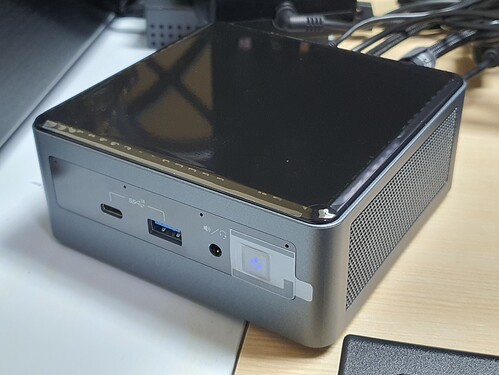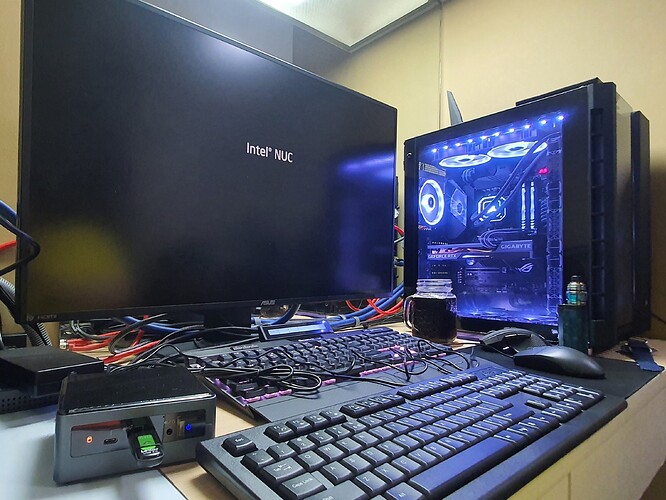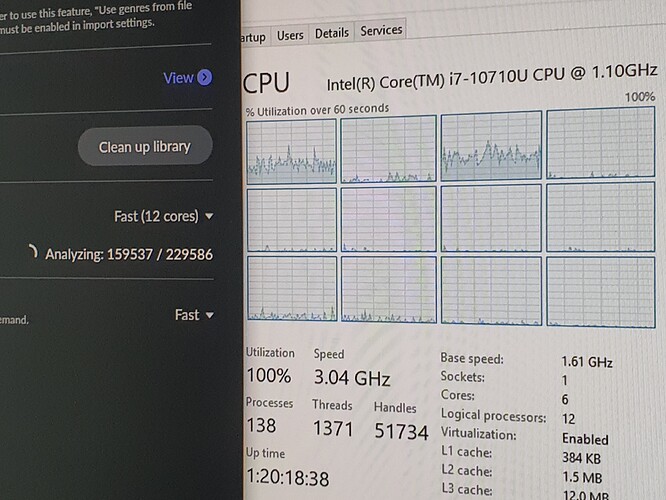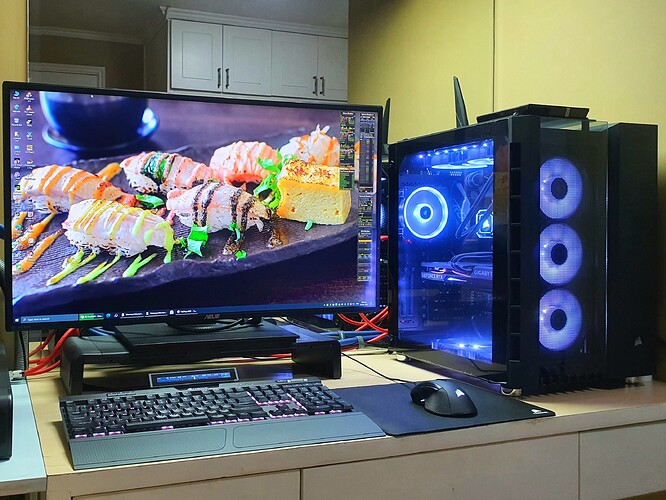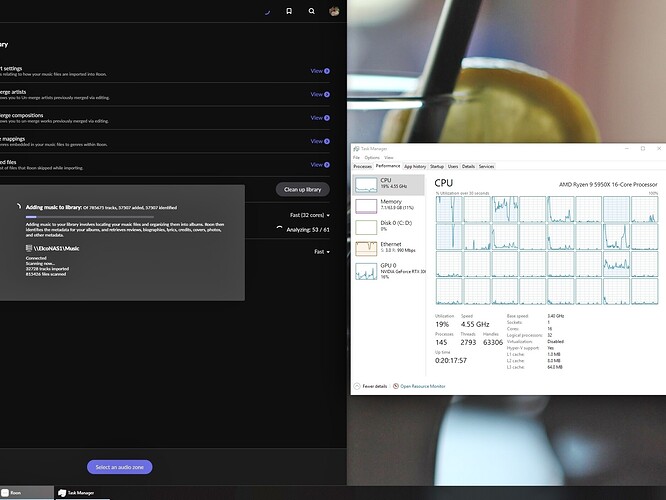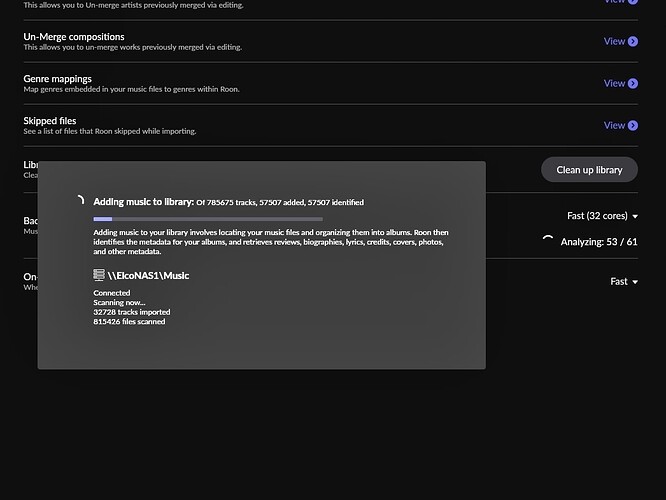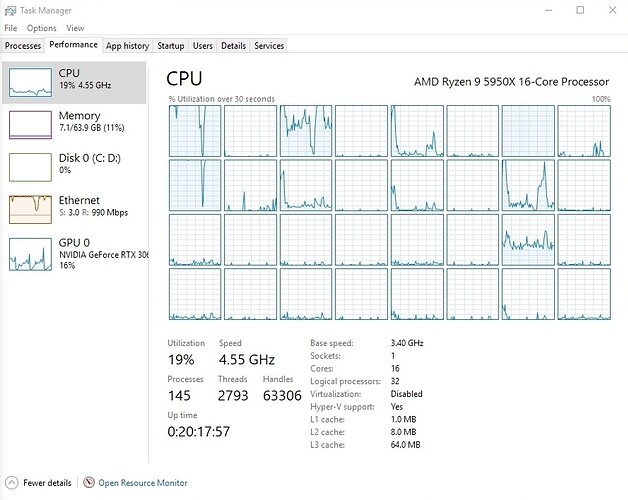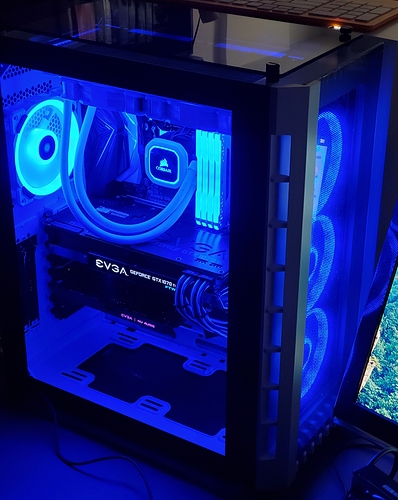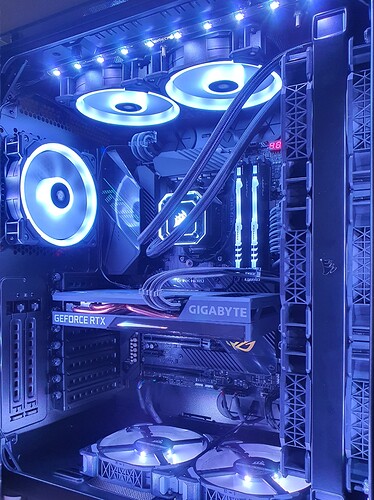I just set up two Roon cores. One for my home and one for my office. I have two lifetime subscriptions.
One Core is on a new NUC10i7FNH running a fresh install of Windows 10 LTSC, licensed and activated. Its got 16GB of memory and a 256GB M.2 NVME SSD.
The other is on a new desktop PC also running a fresh install of Windows 10 LTSC, also licensed and activated. Its got an AMD Ryzen 9 5950x on an Asus Crosshair VIII Dark Hero motherboard, 64GB of memory and a 1TB NVME SSD. A 360mm Corsair H150i Capellix AIO liquid cooler takes care of keeping CPU temperatures down. It hovers at 5 degrees over ambient at idle.
I decided to run Roon on Windows instead of ROCK because those computers will also be used for tasks other than Roon.
First, the NUC. I wired it to my home gigabit network via CAT6E as is my Synology DS918+ NAS where my CD rips are stored.
Installing Roon on the NUC went without a hitch. I set it to use all 12 logical cores of the i7-10710U inside the NUC to scan albums from my NAS. Based on Windows task manager, this was certainly the case. All 12 cores were pegged at 100% while Roon doing its thing. I believe this is normal so I fully expected this. CPU usage went down to 1% and stayed there once Roon finished scanning.
Next, my Ryzen computer. Installing Roon also went without a hitch but based again on Windows task manager, only 8 of the 5950x’s thirty-two logical cores were being used while scanning albums from the same NAS.
I could change core usage from 1 to 2, 3, 4 and so on and Windows task manager shows me the CPU cores “firing up,” so to speak, but only up to 8 cores. Any higher setting was being ignored. During this time CPU temperatures were manageably low according to both the Ryzen Master software and CoreTemp. At no time did my CPU throttle.
To test if all 32 cores are working properly, I ran Cinebench. During the multicore test, Windows task manager indeed showed all 32 cores working.
So basically, Roon uses only 8 logical cores of my AMD 5950x to scan my albums. Cores 9 to 32 aren’t, even if I set it from 9 to 32.
Why is this? Is there anything I can do so that Roon will use all 32 cores? Thanks in advance.
